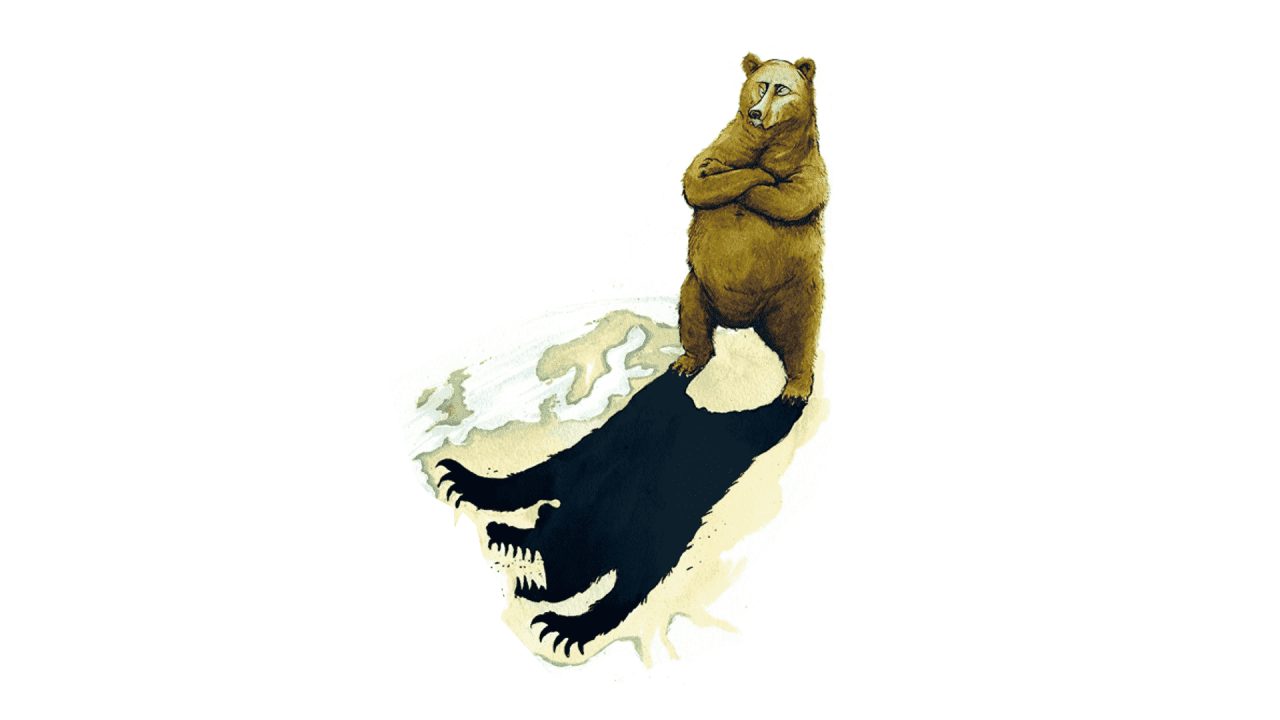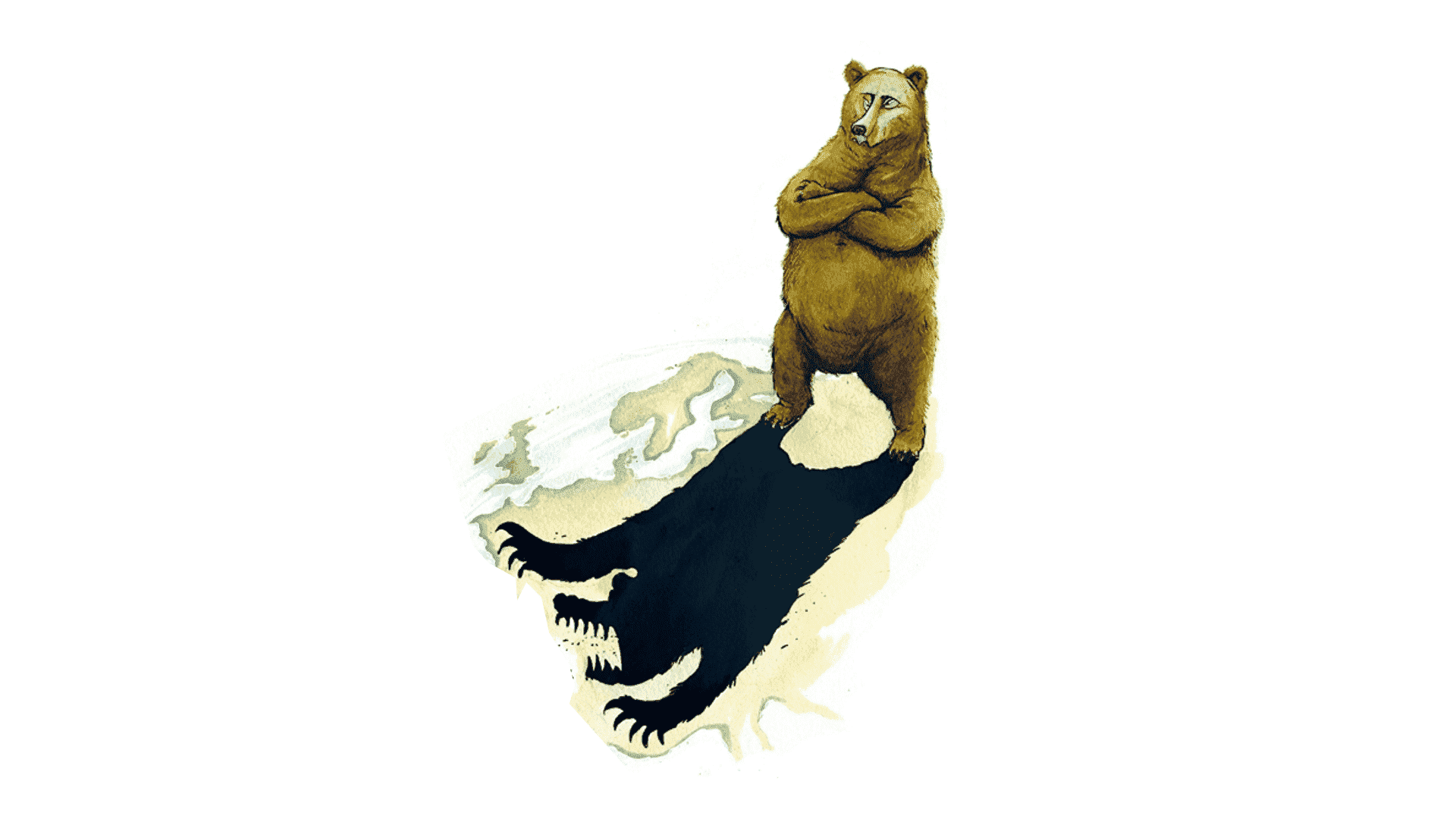Is Russia’s invasion of Ukraine ‘a turning point in history’? Does it spell the end of the American era, and the beginning of a new Cold War between the West and a Russo-Chinese axis of authoritarians?
Some invoke the image of 1939. After assuring the world that he was interested only in protecting his fellow Germans in the Sudetenland, Adolf Hitler annexed the rest of Czechoslovakia and then invaded Poland, setting off world war two. Are the Russians in the Donbass the modern equivalents of the Sudeten Germans? Where will Putin stop? Others draw an analogy to 1948 and Stalin’s drawing of an Iron Curtain across Eastern Europe, followed by the Sino-Soviet axis in Asia after the Communists took over China in 1949.
But these analogies fail because of two crucial changes in world politics since then. One was the invention of nuclear weapons and the creation of nuclear deterrence. Even Putin wants to survive. Nuclear weapons are like a crystal ball showing leaders, however evil, what the world will look like after a nuclear war. In August 1914, if Europe’s leaders had peered into a crystal ball and seen a picture of 1918 with tens of millions dead and four empires destroyed we might not have had world war one. Of course Putin’s nuclear threats could still lead to disastrous outcomes. But the reason Russia has been able to deter the US from fighting in Ukraine is an asymmetry of national interests, not an asymmetry of nuclear capability. It does not follow that he would have the same advantage if he tried to take over Estonia or Poland which benefit from American extended deterrence under Article 4 of Nato. For 40 years, sceptics pointed out that small contingents of American troops in Berlin could not possibly defend the city, but their presence was essential to deterrence.
Vladimir Putin may discover that ruling a nationalistic population is more difficult than defeating Ukraine’s army
The other major change has been the information revolution. War is fought today with mobile phones, social media, and private surveillance satellites. Information has always been an important part of Soviet and Russian doctrine, but now access to information is more widely distributed and more difficult to control. It has always been true that success in war depends not only on whose army wins, but also on whose story wins. But in the information age, it is more difficult than ever before to control the narrative. Not only did Biden’s disclosure of intelligence spoil Putin’s planned narrative, but so also do Ukrainian citizens filming the war with their mobile phones.
Hard and soft power operate on different timescales. Hard power is tangible and immediate while soft power depends on changing minds over time. The latter takes longer, but is important nonetheless. When the Berlin Wall collapsed in 1989, it was not under an artillery barrage but under hammers and bulldozers wielded by people whose minds had changed. In the US invasion of Iraq in 2003, it did not take the American military long to defeat Saddam Hussein, but George Bush’s famous ‘mission accomplished’ banner failed to note the American deficit in soft power that kept the US bogged down in Iraq. Vladimir Putin, too, may discover that ruling a nationalistic population is more difficult than defeating Ukraine’s army.
It is much too soon to predict the future of Putin’s invasion. As I used to remind analysts when I chaired the National Intelligence Council that prepared estimates for the president, there is no single future but rather a range of futures with different probabilities which our actions can affect. You can imagine a spectrum of futures regarding Ukraine ranging from a formal incorporation of Ukraine into Russia and a prolonged Cold War, to Putin being undercut in the long term and a weakening of his alliance with China. Paradoxically, our declaration of a Cold War might increase the odds of the first and reduce the odds of the second.
It is more clear that the invasion spells the end of the post-Cold War order, but the American hubris of the first decade had already come to an end with 9/11 and the invasion of Iraq. When we speak of international order, we sometimes mean the balance of power among states, and sometimes the set of rules and norms that affect their relationships. Putin’s invasion has done grave damage to the normative order, but the UN prohibition on use of force to change borders had already been violated by the US in Kosovo in 2009, and by Russia in Crimea in 2014. Whether this important norm can be restored or not remains to be seen, but most states in the UN have a strong interest in preserving their sovereignty.
Whether the invasion signals a shift in the balance of power is more doubtful. After the 2008 financial crisis, Russia and China began to suggest that the US was in decline, but the US share of the world economy (about a quarter of the total) has remained surprisingly constant for decades. Even if the size of China’s economy (measured by exchange rates) surpasses the US in the next decade, and China tightens its alliance with Russia (which has an economy about the size of Italy), the two together will come nowhere near to equalling the combined economic strength of the US, Europe and Japan. Moreover, the US possesses power advantages compared to China and Russia in terms of geography (friendly neighbours), demography (a growing population), technology (the world’s top research universities), finances (the role of the dollar), and alliances. The major threat to American power comes from its internal divisions. They are serious liabilities but they were not created by the invasion of Ukraine.
A strategy of great power competition between a democratic and an authoritarian bloc may help America mobilise support at home, but it lumps together very different types of states. Russia is a declining power and China a rising one. The US must appreciate the unique nature of the threat that Russia poses. As the world sadly discovered in 1914, on the eve of the first world war, a declining power (Austria-Hungary) can sometimes take the biggest risk in a conflict. Today, Russia is in demographic and economic decline. Its economy is dependent on the export of oil and gas and it has failed in its efforts to transform its economy as the US and China have. Russia retains enormous resources, including mercenaries and proxies, that it can employ as a spoiler in cyber conflict and in the Middle East and Africa. Now Putin has employed those resources in his effort to ‘Make Russia Great Again’ by invading Ukraine. But if this cuts Russia off from European and American technology, history may judge Putin to have been a great tactician, but a failure as a strategist who achieved his goal of restoring Russia’s place in the world.







Comments